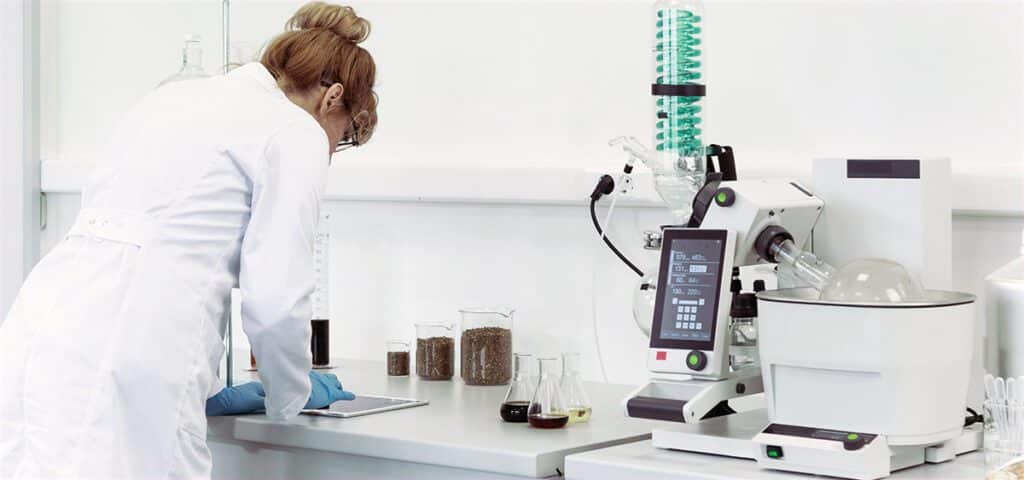Many of California’s cannabis testing labs are currently not allowed to test the potency of flower products due to a rule change designed to combat so-called “lab shopping” in the state.
Majority of California Labs Barred From Testing Cannabis Flower

Chemical scientist wearing rubber gloves controls CBD oil extraction in rotavapor. Machine has big green condenser. Glass tubes and cups with hemp seed are part of laboratory background.
Full story continued below.
Advertisement
Many of California’s cannabis testing labs are currently blocked from testing the potency of flower products — the industry’s most popular consumer option — under new guidelines from the Department of Cannabis Control (DCC) that took effect this year, KTLA reports. Labs that are not compliant with the new guidelines are not allowed to test any cannabis flower products including the buds themselves and non-infused pre-rolls.
At the start of the year, just 12 of the state’s testing labs had met the new requirements but MJBizDaily reported this week that six more labs had become compliant and could resume their testing regiments, bringing the total number of labs equipped for testing flower products to 18.
Previously, 38 labs across California were performing the tests.
“The Department has not been informed of any significant product delays, but there could be a slight delay in some products reaching dispensaries in the near term. To help prevent this from happening, the Department DCC has been prioritizing re-sampling requests from distributors who had samples with labs that cannot currently conduct flower and non-infused pre-roll testing.” — DCC spokesperson David Hafner, via KTLA
Hafner also suggested that more labs’ testing methods would be verified “in the near future.”
DCC regulators introduced the rule change last year and it took effect on October 1, 2023, although compliance with the shift was not required until January 1, 2024. The agency said at the time that the reason for the change was “to ensure all licensed laboratories are using the same standardized cannabinoid test method which will ensure consumers receive accurate and consistent information regarding the cannabinoid content of the cannabis and cannabis product they use or consume.”
Under the new guidelines, regulators hope to deter bad actors from the practice of “lab-shopping,” which occurs when testing labs inflate their potency results so cannabis companies can list the higher potencies on their products, making them more attractive to consumers.
Get daily news insights in your inbox. Subscribe
End